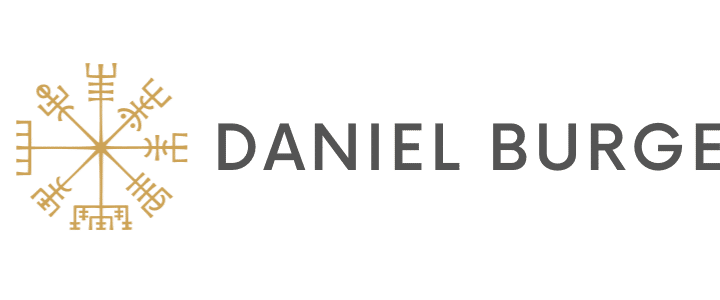This post occasionally gets updated.
Of all the healing modalities I have encountered, and with decades of experience that is a lot, I have found Family Constellations to be the most rapid and effective way of healing adoption-related trauma. It has the potential to bring us to a place where we are at complete peace with our parents, an idea that is often and understandably beyond comprehension even to those who were not adopted. Are yourself, are you truly at peace with your parents? What could life look like if you were? My work make changes possible at a deep soul-level, both for adoptees and non-adoptees alike.
I wrote this article in response to a professional Family Constellations facilitator who recently asked for advice on facilitating a client who is adopted. I have written this post with experienced therapists and constellation facilitators in mind. These are simply aspects that I have noticed over time, and are offered as compliment to the knowledge and practical experience of facilitating Family Constellations that you have. It is by no means exhaustive and every person and family system is different. Some of the terms mentioned, such as ‘orders’ and ‘bowing’ will probably only be familiar to Family Constellations facilitators. Still, in the spirit of demystifying processes, I’m posting it here and hope it may be of value to non-professionals.
It is possible that the effects of being adopted are not the client’s main issue or maintaining cause, but this is unlikely. In every family system that I have worked with that has adoption, there has been significant trauma.
Adoption happens after the fact. As facilitators, we need to find the ‘Never Been Well Since’ event or events in the client’s life that occured prior to the actual adoption.
Many people who were adopted, experienced existential trauma, the immediate threat of annihilation as soon as their separate sense of self incarnated. If this is so, life can feel extremely unsafe.
Adoption can save a person from a traumatising family system of origin.
Being adopted is as perfect a set of circumstances for full incarnation and realisation as anyone else’s circumstances.
There is nothing ‘wrong’ with a person who was adopted. In fact it can be quite the opposite. Sometimes a child brings through so much light that the container of the family of the child’s biological origin simply cannot handle this light and it can shatter. It is also possible that it is already broken. In either case it can be the child’s destiny to not stay with this family. With an adoption they may go to a new system that can hold the amount of light that they bring. Sometimes they transcend these systems and become free of the need to belong.
In terms of advice to you as a facilitator, the prerequisite to work with an adopted person, or anyone else for that matter, is that you mustn’t be in trauma. Many therapists have managed to avoid dealing with their own trauma. It doesn’t matter how effective or amazing or successful your work may look on the outside to you or your clients, if you haven’t processed your own trauma/ exited your own trauma story, which is so often the case, you will simply attract people’s trauma to more trauma. This is the nature of the trauma field.
For a person to be able sit with someone who knows that there is nothing wrong with them and for them to experience this can in itself be a revelation. You can make this available with your presence.
Presence can help foster:
The return of safety.
The reestablishment of basic trust.
A complete down-regulation of the system, releasing it from the need to stay in a state of hyper-vigilance, catalysing the way for paradise to become unpaved.
When facilitating Family Constellations in a group, instead of entering into more complex work, it can be enough to invite the person to choose four people in a group to represent their parents, natural and adoptive, at least for their first constellation. They can sit in front of the representatives of their parents. There is no need to bow. They may have had a lifetime trying to see them all together, which may have been an impossible task. You can facilitate this for them. Let the parents do the work.
You can also set up the family orders.
Either or both of these processes can be enough.
Inviting people to represent the client’s ancestors to stand behind the representatives for their parents can be profoundly resourcing and connecting, but for these first steps it may be that you sense it could be more than needs to happen, for now.
The further you go, you need to be aware and have the expertise with multiple traumas: identity trauma, physical trauma, the trauma of love, the trauma of sexuality, and victim-perpetrator dynamics.
Use the client’s language. If at the beginning they call their adoptive parents their ‘real parents’ then follow this, or maybe you can call them ‘parents’. You don’t need to change their words. They already have the answers. Having four parents can be confusing enough. If they call their natural parents their ‘birth’ or ‘biological’ parents, then honour this. You may feel that you know better, but always let them lead, as these terms are all just labels. They may have had their original name taken from them, so this can heighten sensitivity. All will eventually fall into place.
Work with tenderness, sensitivity and humility. Help the person to realise the exquisite level of care that they have always had for themselves. It will be there.
Confusion of identity can be significant, so you may be moved to address this first, or along with any love/relationship related trauma that is present. The relevant family members will appear from this inner landscape.
Some further aspects of adoption that I’ve noticed:
We may assume that one or both parents actually gave their children up for adoption. We should check this. Sometimes this is true, but they may have been coerced or had their baby stolen from them with officials having falsified records. My face to face clients are mostly in Ireland, so I have had to learn these truths from personal experience. If we don’t know that the parents freely gave their child away, then I suggest we should refrain from saying something such as “when a mother gives up the child for adoption they relinquish their rights as a parent”. Did she really just “give them up”, or was she doing her best to find a solution when faced with a world of rapidly diminishing options? If a child was stolen by the church or state and recorded in the records as adopted, has the mother still lost her rights as a parent?
If the child’s grandparents knew of their daughter’s pregnancy and did nothing to stop the family keeping hold of the child, then it can be said that it was they who gave the child up for adoption. The mother may have been a victim of ever decreasing resources and support. So if you are a Family Constellations facilitator, you can bring the child’s grandparents into the constellation to see what is so.
There is a strong possibility that physical birth trauma occurred. The birth is often difficult and can involve intervention such as forceps delivery, and/or anaesthesia. If the mother has advance knowledge that she will be relinquishing her child, it is unlikely she will be in a healthy state when she goes into labour. Knowing what is to come, she may feel that this is her last chance to hold on to her child. The effects of the physical trauma on the child can exacerbate the psychological trauma that occurs when their parents go on to relinquish them.
In between the time of the child being relinquished by the mother and the adoptive parents receiving/taking the child, there will often be a caregiver of some sort, a nun, or social worker. Maybe this person was kind and loving to the child, or possibly cold and unemotional. However short this relationship, this is the one that came immediately after the natural mother. Representation of this person may reveal an extraordinary resource that the client can connect with, or something else. Deep-seated issue with authority? This person may have been experienced as a perpetrator. After all, it can be understandable if the child feels that this person stole them from their mother and that the adoptive parents then saved them. So we can give this ‘intermediary’ a place in a constellation. I would love to hear how many family constellation facilitators have done this and what has been seen.
I was adopted at eight weeks old from Ireland to England. Thankfully my secretly pregnant mother saved up for a plane ticket to get to London. If she had taken the ferry, she would have been stopped by Catholic ‘guards’ who used to wait at the English ports to escort the young women back to Ireland to be locked in a Magdalene laundry/ mother and baby home. Ireland had what has been accurately referred to as ‘The Adoption Machine‘, termed by Paul Jude Redmond, author of the book by the same title. What happened in Ireland was nothing less than a nationwide church and state-sanctioned human trafficking operation on a vast scale. As legislation changed in Ireland and other western countries, this has become a recognisable structure in other countries where helpless babies are more readily available.
There are few adoption-specific pages on this website and also an interview I did with the author Anne Heffron, who like me, was adopted as a baby. The conversation spontaneously evolved into a constellation. It will show just how such a small step in facilitation can make something significant happen for someone who was adopted. https://danielburge.com/interview.
Adoption is highly complex, and society has done a very effective job of glazing a vast set of assumptions over the lens through which we see it.
I hope this has made the lens a bit clearer.



